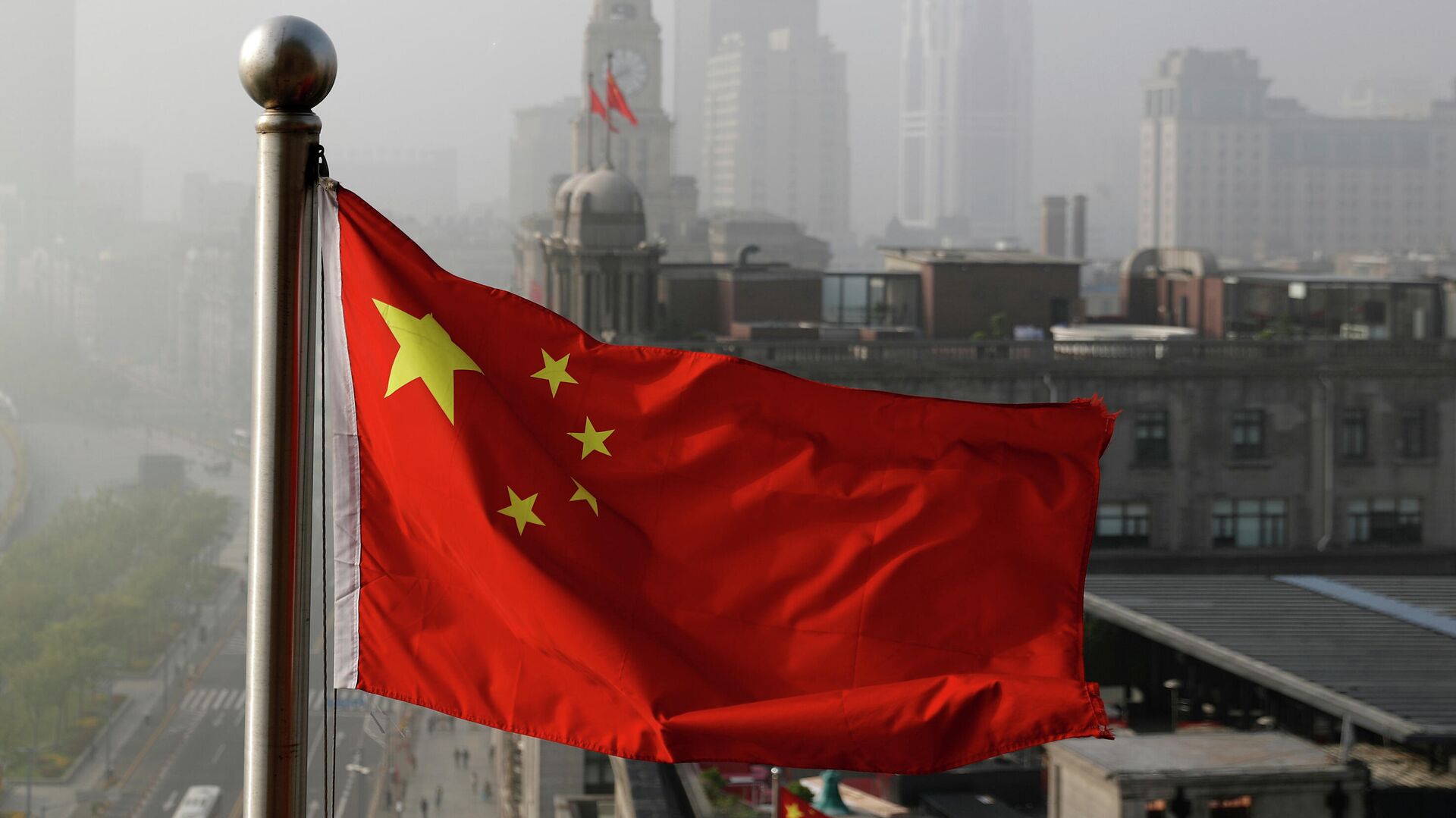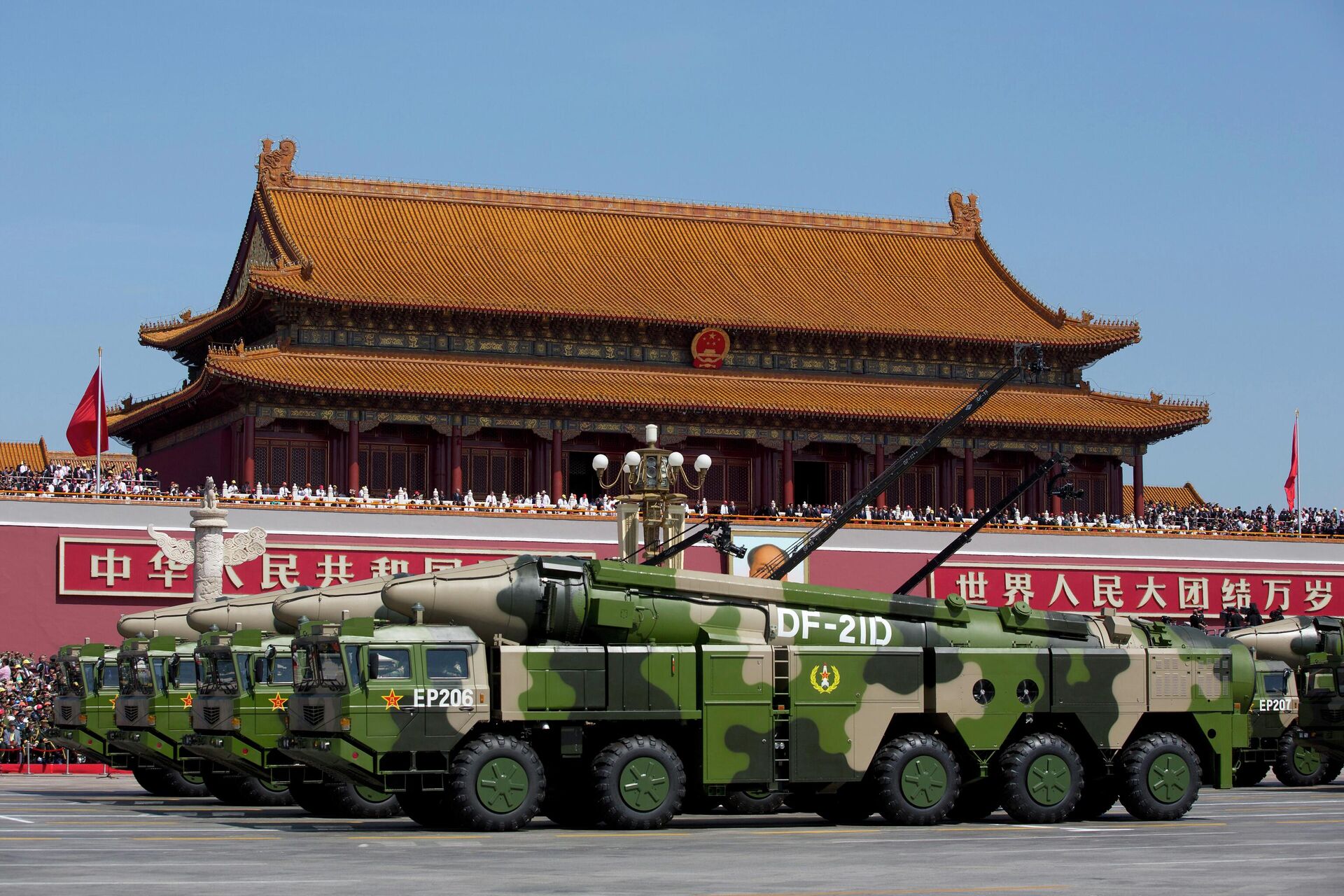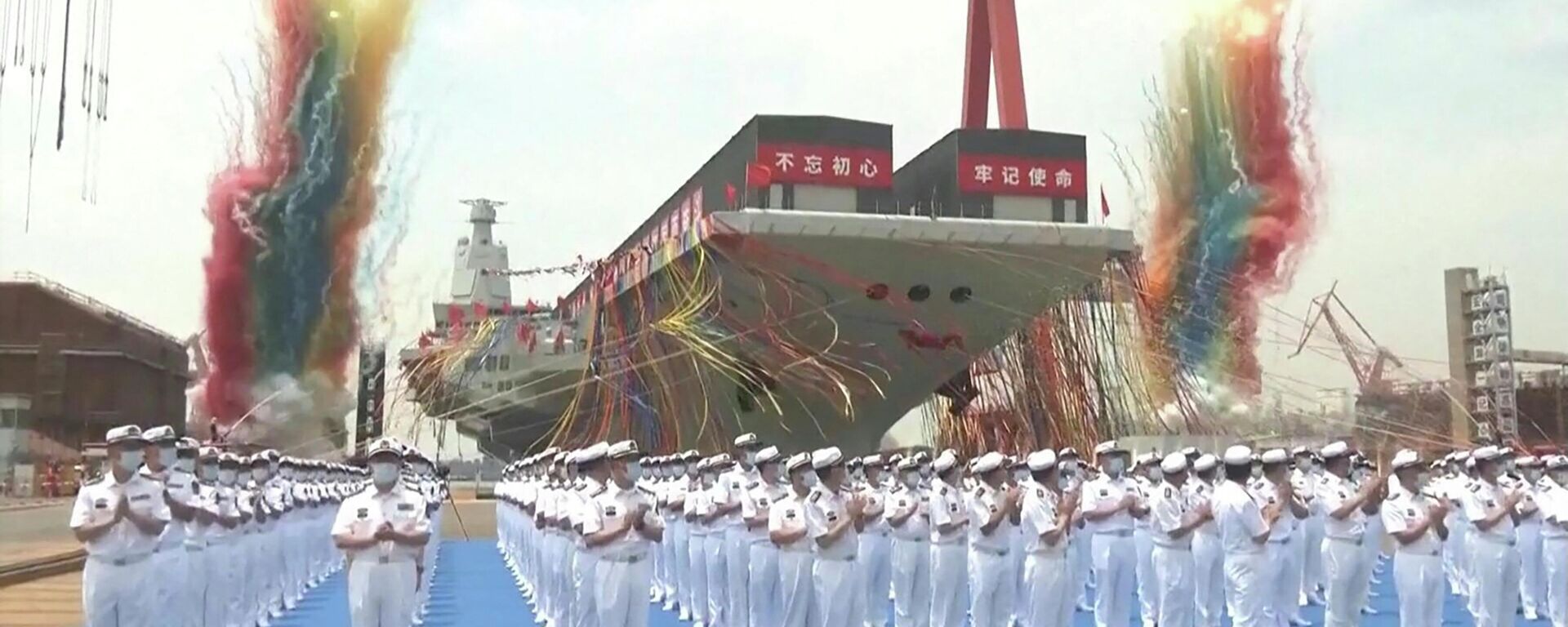https://sputnikglobe.com/20220620/china-announces-successful-anti-ballistic-missile-test-amid-push-to-enhance-defense-capabilities-1096487373.html
China Announces Successful Anti-Ballistic Missile Test Amid Push to ‘Enhance Defense Capabilities’
China Announces Successful Anti-Ballistic Missile Test Amid Push to ‘Enhance Defense Capabilities’
Sputnik International
The test comes amid simmering tensions between Beijing and Washington, as China’s defense minister accused the US of “smearing” and trying to ‘contain’ his... 20.06.2022, Sputnik International
2022-06-20T13:21+0000
2022-06-20T13:21+0000
2023-06-19T12:44+0000
china
anti-ballistic missile
terminal high altitude area defense (thaad)
us
taiwan
https://cdn1.img.sputnikglobe.com/img/07e6/03/0d/1093840705_0:320:2949:1978_1920x0_80_0_0_c4614f19d1579cc68e486209bc547cdc.jpg
China carried out a successful anti-ballistic missile test on June 19th, the country’s Defense Ministry announced in an official statement.As part of Beijing’s ongoing efforts to enhance the country's defensive capabilities, the land-based mid-course missile was tested within China's borders, the ministry added. It was also underscored that the test was defensive in nature and not targeted against any country.Anti-ballistic missile systems typically use projectiles to intercept incoming missiles, such as intercontinental ballistic missiles (ICBMs). China has been conducting anti-ballistic missile tests once every few years since 2010, according to the Global Times. The last time it carried out such a missile test was in February 2021, according to state media, with Sunday’s launch becoming the sixth such known test.No clarification has been released by Beijing regarding which system exactly was tested on June 19th. However, the size of the closed airspace ahead of the test suggested it could have been the medium-range HQ-19 defense system, an expert was cited by CNN as saying. This is an upgraded version of the HQ-9 and is designed to counter ballistic missiles and satellites at the lower end of low Earth orbit. The system is thought to be the equivalent of the US-made Terminal High Altitude Area Defense (THAAD) air defense system."China is planning to build a multilayered missile defense system which consists of several components," Tong Zhao, senior fellow in the Nuclear Policy Program at the Carnegie Endowment for International Peace, was quoted by the outlet as saying.According to him, China has already successfully developed HQ-9 and HQ-19 missile defense systems for tackling short-range and medium-range missiles, but has yet to announce a system that can intercept longer-range and intercontinental ballistic missiles.China's current anti-ballistic missile test is being closely watched by Washington amid heightened tension between the two countries.Taiwan, an island governed independently from mainland China since 1949, is an increasingly flashpoint issue, with Washington pledging to boost the island's defense to protect it from "provocative and destabilizing" moves by Beijing.This rhetoric prompted Beijing, whose official policy envisions a peaceful unification of Taiwan with Mainland China, to yet again lambaste the Joe Biden administration for "meddling" in Chinese internal affairs and violating the "One China policy."China’s defense minister, Wei Fenghe, speaking at the Shangri-La Dialogue in Singapore earlier this month, accused Washington of “smearing and containing China.”
https://sputnikglobe.com/20220617/china-launches-its-third-aircraft-carrier-fujian-as-tensions-around-taiwan-continue-to-grow-1096394964.html
https://sputnikglobe.com/20220617/us-provokes-china-in-new-row-over-taiwan-1096391355.html
china
taiwan
Sputnik International
feedback@sputniknews.com
+74956456601
MIA „Rosiya Segodnya“
2022
News
en_EN
Sputnik International
feedback@sputniknews.com
+74956456601
MIA „Rosiya Segodnya“
Sputnik International
feedback@sputniknews.com
+74956456601
MIA „Rosiya Segodnya“
china, anti-ballistic missile, terminal high altitude area defense (thaad), us, taiwan
china, anti-ballistic missile, terminal high altitude area defense (thaad), us, taiwan
China Announces Successful Anti-Ballistic Missile Test Amid Push to ‘Enhance Defense Capabilities’
13:21 GMT 20.06.2022 (Updated: 12:44 GMT 19.06.2023) The test comes amid simmering tensions between Beijing and Washington, as China’s defense minister accused the US of “smearing” and trying to ‘contain’ his country by interfering in its internal affairs.
China carried out a successful anti-ballistic missile test on June 19th, the country’s Defense Ministry announced in an
official statement.
As part of Beijing’s ongoing efforts to enhance the country's defensive capabilities, the land-based mid-course missile was tested within China's borders, the ministry added. It was also underscored that the test was defensive in nature and not targeted against any country.
Anti-ballistic missile systems typically use projectiles to intercept incoming missiles, such as intercontinental ballistic missiles (ICBMs). China has been conducting anti-ballistic missile tests once every few years since 2010, according to the Global Times. The last time it carried out such a missile test was in February 2021, according to state media, with Sunday’s launch becoming the sixth such known test.
No clarification has been released by Beijing regarding which system exactly was tested on June 19th. However, the size of the closed airspace ahead of the test suggested it could have been the medium-range HQ-19 defense system, an expert was cited by CNN as saying. This is an upgraded version of the HQ-9 and is designed to counter ballistic missiles and satellites at the lower end of low Earth orbit. The system is thought to be the equivalent of the US-made
Terminal High Altitude Area Defense (THAAD) air defense system.
"China is planning to build a multilayered missile defense system which consists of several components," Tong Zhao, senior fellow in the Nuclear Policy Program at the Carnegie Endowment for International Peace, was quoted by the outlet as saying.
According to him, China has already successfully developed HQ-9 and HQ-19 missile defense systems for tackling short-range and medium-range missiles, but has yet to announce a system that can intercept longer-range and intercontinental ballistic missiles.
China's current anti-ballistic missile test is being closely watched by Washington amid heightened tension between the two countries.
Taiwan, an island governed independently from mainland China since 1949, is an increasingly
flashpoint issue, with Washington pledging to boost the island's defense to protect it from "provocative and destabilizing" moves by Beijing.
This rhetoric prompted
Beijing, whose official policy envisions a peaceful unification of Taiwan with Mainland China, to yet again lambaste the Joe Biden administration for "meddling" in Chinese internal affairs and violating the "One China policy."
China’s defense minister, Wei Fenghe, speaking at the Shangri-La Dialogue in Singapore earlier this month, accused Washington of “smearing and containing China.”
“Stop interfering in China’s internal affairs. The bilateral relationship cannot improve unless the US side can do that,” he stated.






